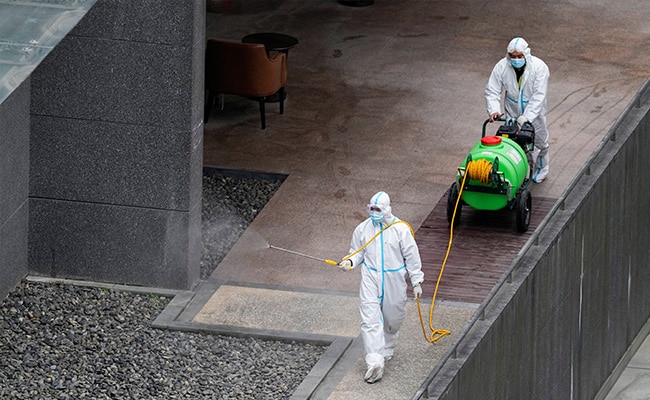Markets bracing for tough week: China trade slows as zero-Covid policy has disastrous impact on economy

With China continuing to pursue its zero-Covid policy the restrictions in Shanghai are having a chilling effect on economic output there, as well as port activity, or rather the lack of it, as container ships continue to sit off the Chinese coast waiting to be unloaded.
This morning’s China trade data for April only serves to reinforce that further.
The numbers in March were disappointing, and Aprils were little better, with imports down 0.1 per cent in March and unchanged in April.
Exports were also disappointing coming in at 3.9 per cent, down sharply from 14.7 per cent, as transportation difficulties and port stoppages impacted the flow of goods and services.
“Any prospect of supply chain concerns easing looks even further away than it was a few months ago,” analyst Michael Hewson writes this morning.
Markets
US markets underwent another disappointing week falling for the fifth week in a row, summarised Hewson, chief market analyst at CMC Markets UK.
“Although up until Wednesday things had looked much more promising in the wake of the Fed’s decision to raise rates by 50bps, the biggest one-month rate rise since May 2000,” he said.
“In less than 24 hours the positive vibe generated by the Fed announcement and Fed chair Jay Powell’s press conference had evaporated faster than an ice cube in the desert, after Bank of England governor Andrew Bailey offered his own rather bleaker outlook of the economic environment, downgrading the UK’s economic outlook to a -0.25 per cent contraction in 2023.”
Hewson pointed out that this caused investors to question whether the Federal Reserve was being less than honest about what is coming down the track.
“You certainly don’t have to look too far to see where the problems are coming from. Russia’s war on Ukraine is in plain sight, however anyone thinking that China’s easing of monetary policy will ease things for the Chinese economy probably need to take a closer look at events currently playing out over there now,” he explained.
US economy
For the here and now the US economy appears to be holding up reasonably well, however “if you look closely enough there are pockets of concern, in particular the housing market, with rising mortgage rates already curtailing home sales, as US treasury yields surge,” Hewson said.
On Friday the US 10 year and 30-year yields pushed to their highest levels since late 2018 at 3.125 per cent and 3.22 per cent.
At the end of last year, they were at 1.51 per cent and 1.9 per cent respectively, Hewson recalls. ”
As far as the labour market is concerned, there wasn’t much wrong with last Friday’s US April payrolls report, apart from a fall in the participation rate, which seemed rather odd, while the unemployment rate remained steady at 3.6 per cent,” he noted.
“You’d have thought with over 11m vacancies in the US economy people would be re-joining the labour force, not leaving it, yet that’s what happened last month.”
428k new jobs were added in April, while the March figure was revised lower to 428k, so a nice bit of symmetry there. Average hourly earnings remained steady at 5.5 per cent which again seems counterintuitive with so many unfilled vacancies.
“This would suggest that employers in the US are reluctant to pay up too much given all of their other costs are rising,” Hewson said.
It was a similarly disappointing week for European markets, the DAX finishing lower for the fifth week in a row, while the FTSE100 closed at a seven-week low.
“Today’s European open looks set to be a negative one, after Asia markets also slid back, with little sign that Chinese leaders were contemplating shifting their zero- covid policy,” he said.
“This week the main focus on a macro basis will be on whether US inflation is showing any signs of plateauing with the release of US CPI and PPI for April on Wednesday and Thursday.”
“Any sign that this is the case could offer some respite to investors who are becoming increasingly anxious about how persistent this trend of rising inflation will last,” Hewson continued.
“With no end in sight to the Russia, Ukraine conflict and little sign of a relaxation of covid restrictions in China the global economy looks set for a much more challenging two years than had been envisaged at the start of the year.”
It’s also May 9th, which is Russia’s Victory day military parade, commemorating the Red Army’s defeat of Nazi Germany.
“Sadly, for them they won’t be able to celebrate a victory in Ukraine, with the war there going so badly for them, which means we could get a further escalation by the Russian President, to try and burnish his credentials with the Russian people,” Hewson concluded.